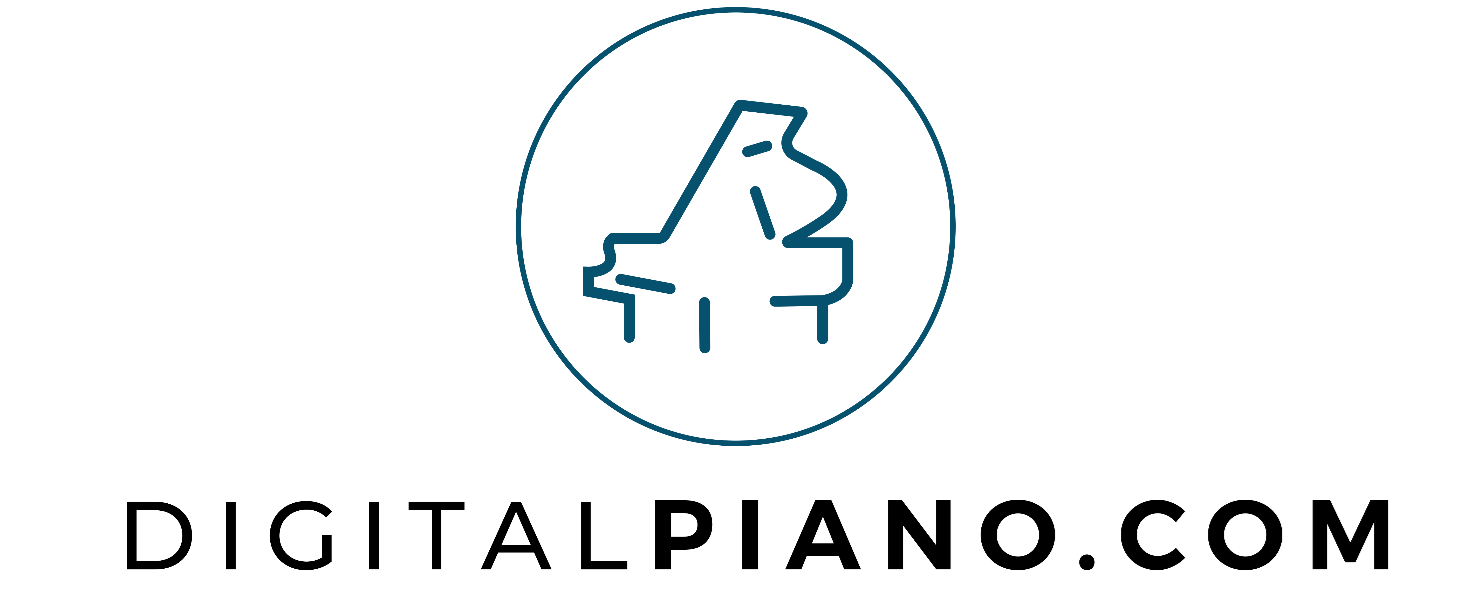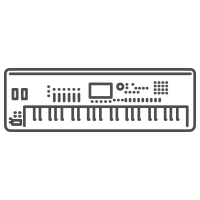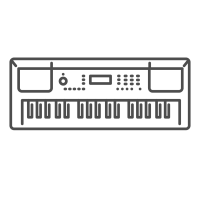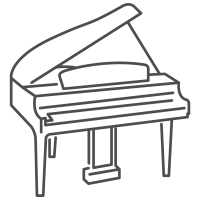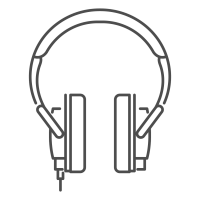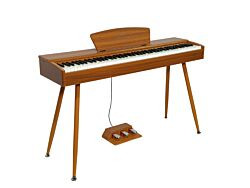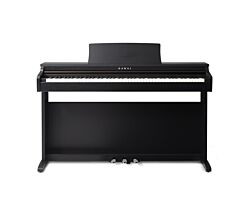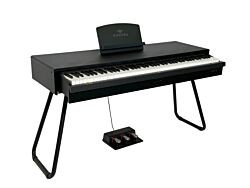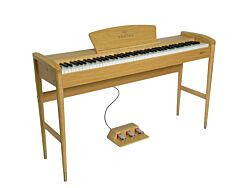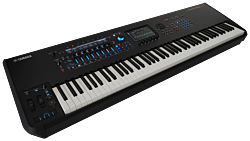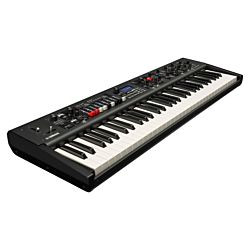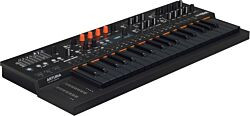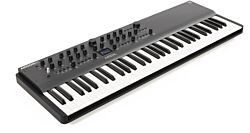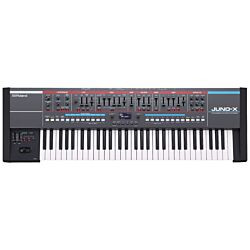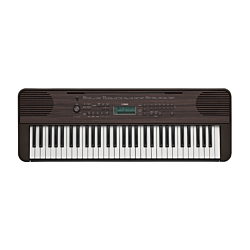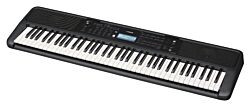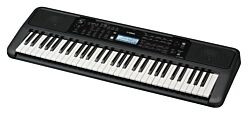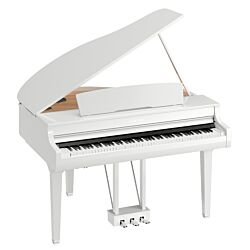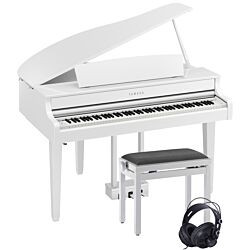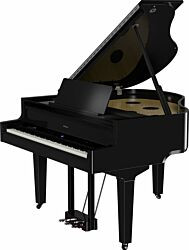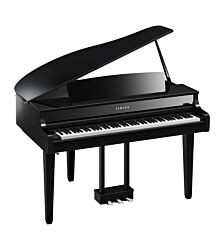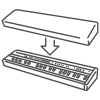Affordable / Low Cost of Ownership
Because they are cheaper than traditional pianos, digital pianos are popular among new piano owners. The price of any digital piano is its most attractive feature. The price of an acoustic piano can range from $500 to more than $200,000! To get an idea of how much the best pianos may cost, just look at the price of a Steinway here. That may be discouraging for someone who is just beginning to play the piano. In addition to not knowing anything about playing, they may feel discouraged by the high initial expense of a good instrument.
On the other hand, digital pianos are substantially less expensive. Finding a top-notch digital piano for $500 or less is not unusual. As with acoustic pianos, there are many categories among digital pianos and you pay for quality, of course. You're more likely to get something that fits your budget if you compare, for instance, a digital piano versus a grand piano.
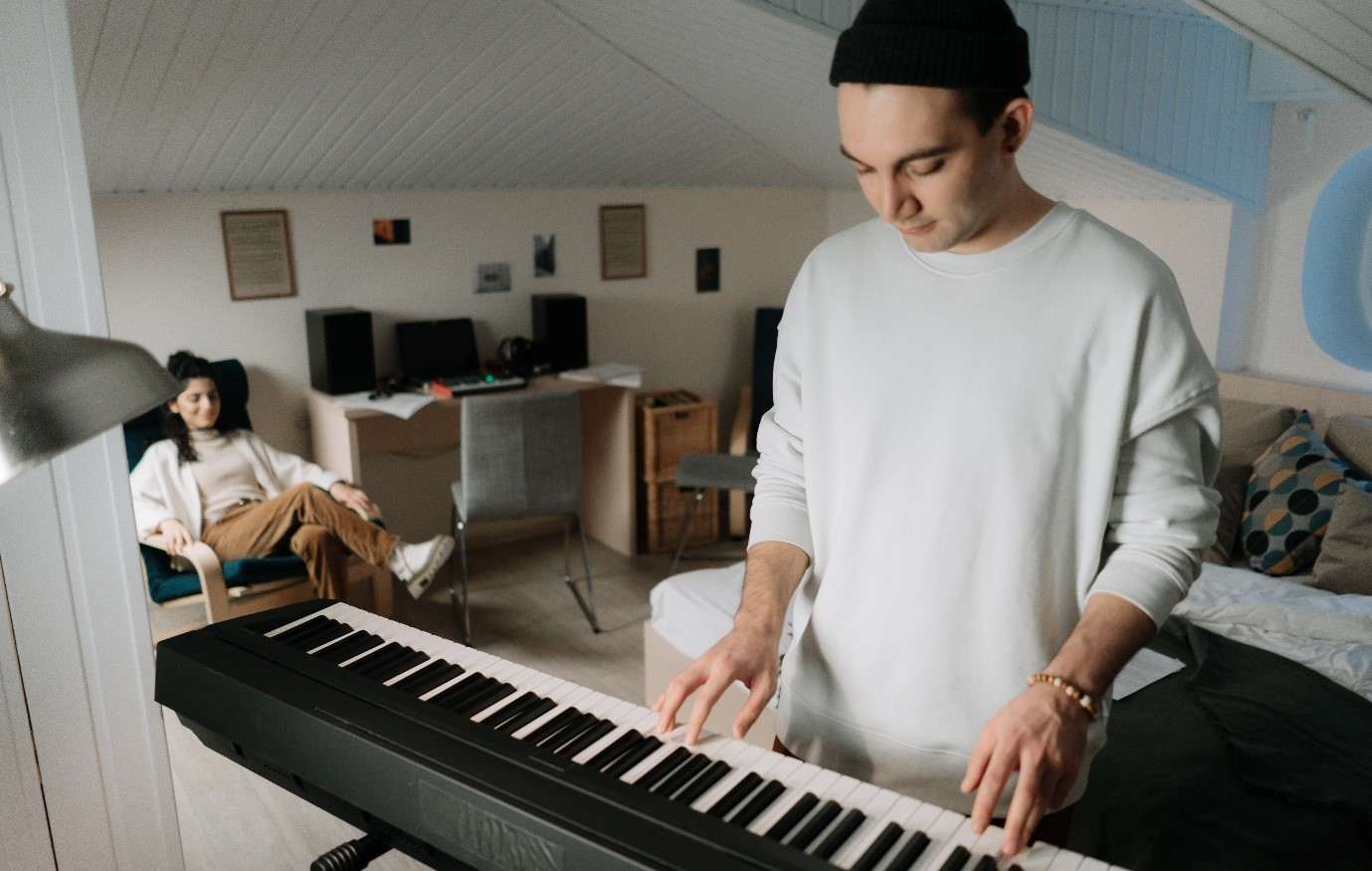
Depending on what you're specifically looking for. The more expensive digital pianos typically include weighted hammer action, which simulates the feel and motion of an acoustic piano. This post contains more information on the operation of the hammer and weighted action.
The quantity of available sound options, aesthetics, and software all affect price.
Great Sound Quality
Since the invention of the digital piano, sound sampling technology has advanced significantly. The top grand pianos in the world, including the 9' Yamaha CFX Concert or the legendary Bösendorfer, now produce lifelike tones for digital pianos.
This sound is richer and more authentic than ever thanks to improved speakers, featuring spruce cone speakers. The CLP 725, a higher-end Yamaha Clavinova, even has the same virtual resonance modeling, simulating the full resonance of an acoustic grand's soundboard, rim, and frame. The digital piano now sounds more realistic than ever because of this.
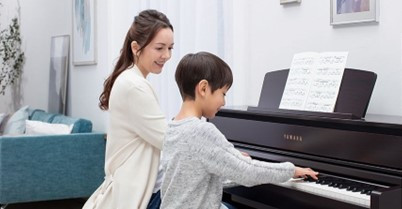
An acoustic piano's tone is highly intricate and made up of numerous factors. Depending on the model, digital pianos reproduce various nuances of an acoustic piano sound to get even closer to the sound of a real acoustic piano.
Some digital pianos also allow you to adjust these parameters to better suit your preferences (more resonance, less hammer noise, etc.)
Reduced Size and Portability
For a variety of reasons, including making them smaller and lighter than classic acoustic and grand pianos, digital pianos were developed.
Because of their modest measurements and ability to fit into smaller spaces, they are suitable for almost every type of living environment, including studios, small apartments, or houses. They fit neatly into any available space corner.
Due to their minimal weight, they also have the added advantage of being simple to travel between sites or relocate around the home.
The simplicity of transporting a digital piano—you can simply pick it up and go—is one of its best and most prominent features. People prefer to interact and socialize more over music, especially if you have musically oriented friends.
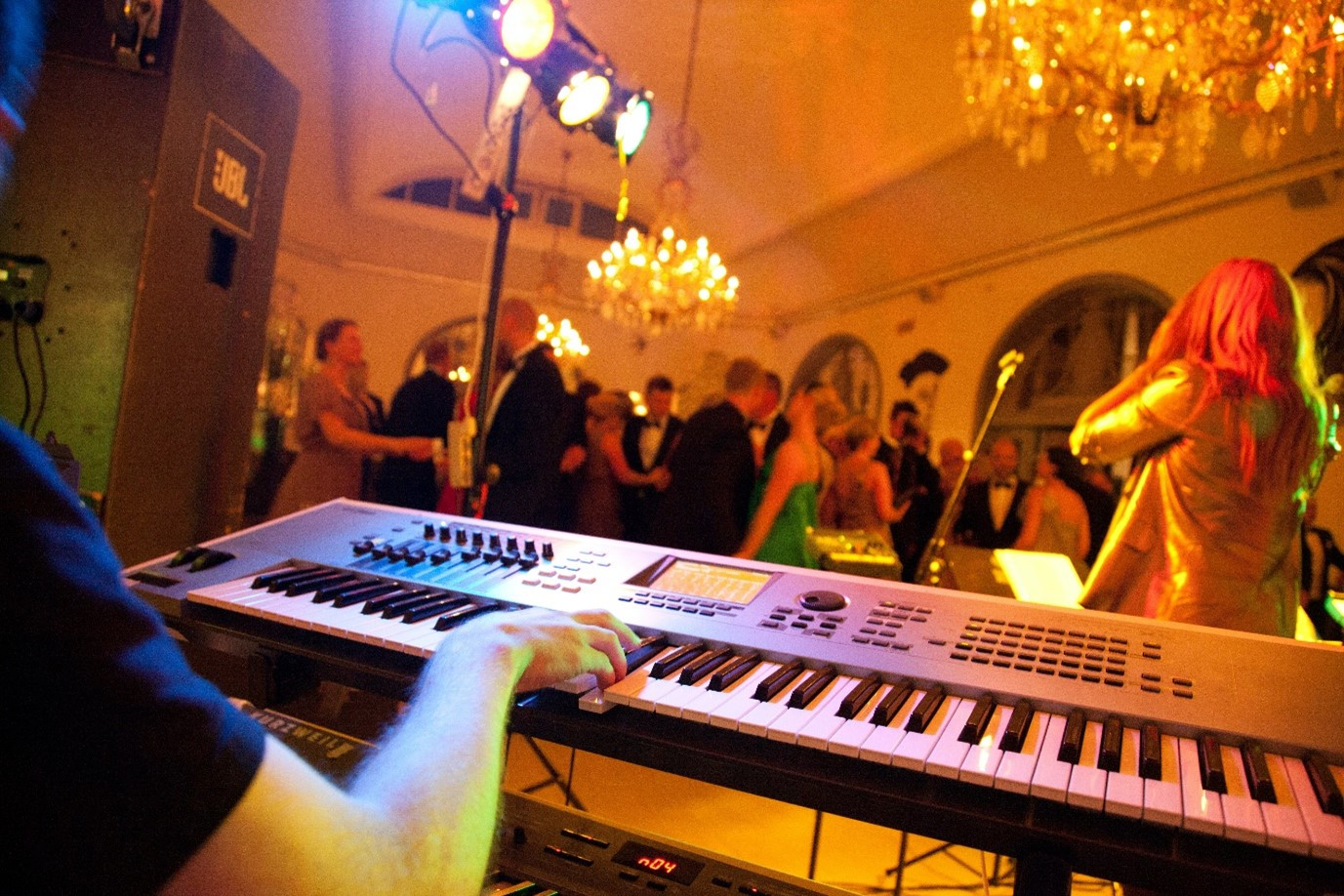
In addition, you might travel frequently or have an event to attend where you need or want your piano. As a result, you need to be able to carry your piano wherever you like, whenever you want.
Tuning is Not Necessary
The fact that digital pianos don't need tuning or other maintenance is another advantage. Their sounds are pre-programmed, so they don't need to be tuned by a skilled tuner. This prevents the uncomfortable moments you get when your acoustic piano starts getting out of tune and saves you money on maintenance every year.
The primary cost-saving measure, however, is the removal of the recurring tuning and maintenance expenses related to their Acoustic and Grand piano equivalents.
Therefore, going digital is the way to go if you have a limited budget or simply want a piano that requires no maintenance.
Any acoustic instrument will occasionally need to be tuned, as you are aware. But tuning an acoustic piano is more difficult than tuning a guitar. Additionally, tuning is a talent that many lack, particularly for an acoustic piano. As a result, it makes sense that many artists value the fact that a digital piano never needs to be tuned because it is always in tune and ready to play.
Use of Headphones / Silent Use
Families especially appreciate this feature of digital pianos as one of their many advantages. Being able to practice with headphones allows you to play at any time of day or night, in secret if you'd like, or to block out noises from a noisy home. People who have switched to playing the digital piano tell us that once they have experienced playing with headphones on a digital piano, they find it difficult to ever go back to a piano without this function.

How firmly you press the keys determines the volume of the notes on a conventional piano. As opposed to a digital piano, which has speakers you can control the level of. An important component for people who share housing.
Sounds from Different Instruments
The range of sounds offered by digital pianos is one advantage of using one for learning. Digital pianos are much more adaptable than acoustic pianos, which only have one sound and tone. They are able to play a variety of instruments, including several types of pianos with different tones. As a result, you can use a resounding Yamaha CFX for your passionate compositions, a lighter piano sound for your classical tunes, or a jazz piano for your personal favorites.
Doing sounds experiments and mixing instruments and tones also make it more enjoyable for children, making the learning more stimulating.
Extra Features
Lastly, one of the biggest advantages of having a digital piano is the ability to incorporate a great number of features to the instrument. This can help fulfil the needs of any musician, doesn’t matter experience or type of music.
Some of the features that can be found in digital pianos are:
- Background rhythms:
One characteristic that is important for every pianist, is the ability to play at the right tempo. Digital pianos have built it metronomes, making it easier for musicians to play any piece at its original speed. This helps beginners and experts, master their playing skills.
- Recording capabilities:
Being able to record and play back any song, brings several benefits to anyone trying to improve their skills. Digital pianos allow you to record your music in different audio formats, letting you hear your performance either if you are an experience musician or just starting.
- Learning apps:
Nowadays digital pianos are capable of connecting with music apps that allow any musician to learn and practice with the help of advance teaching software.
- Bluetooth:
You can now reproduce audio from other devices through the speakers built on your piano using Bluetooth.
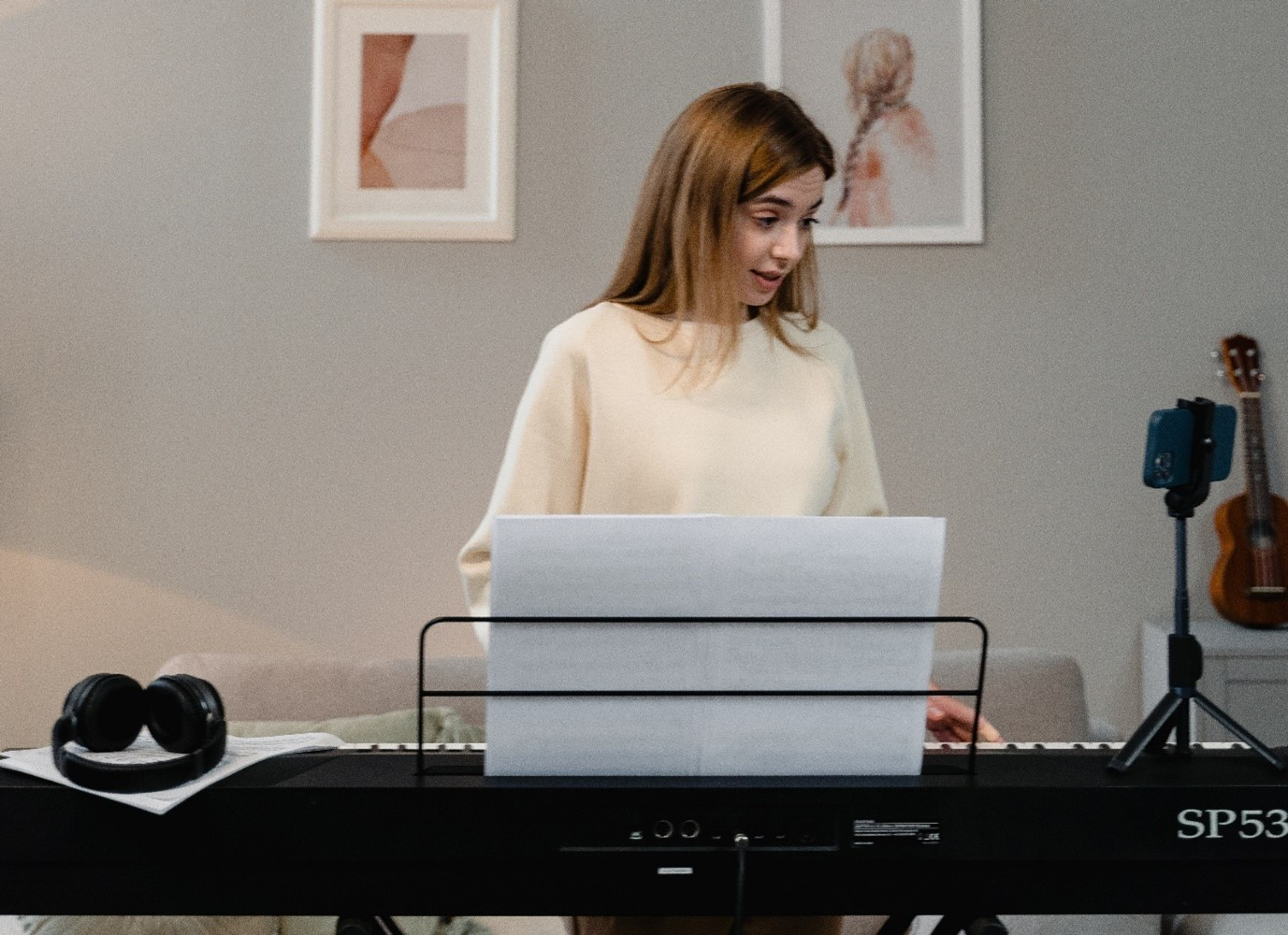
You can incorporate now, YouTube videos, online learning, or any music of your preference to help you practice, get inspired or learn faster. You could add more sounds trough apps or just play along with the new Bluetooth capabilities that most digital pianos have.
Here it is a short guide with great examples to decide what’s the best digital piano for you
You can also visit our YouTube channel for inspiration where you will find videos about piano sound demos and comparisons, unboxing, and demonstrations.
If you need help deciding what’s the best piano for you, please browse our store for more information or contact one of our piano experts to help you find the best piano for your personal needs.
If you would like to browse even more models and types of pianos, please visit our website Digitalpiano.com
